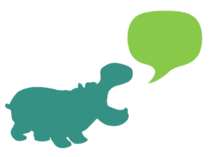I gave a paper asking 'Where is the revolution in citizen history? The place of crowdsourcing in public history' at the IFPH-FIHP International Conference 'Public History in a Digital World: The Revolution Reconsidered', in Amsterdam 23-25 October 2014 #IFPH2014.
My paper was based on my PhD research so I won't share my notes until after I've submitted my thesis, but here's my proposal:
When the term 'citizen history' was used in a 2011 blog post about the United States Holocaust Memorial Museum's Children of the Lodz Ghetto project, which asked members of the public to investigate specific tightly defined research questions,[1] it seemed to herald a new participatory movement in public history. Citizen history is the use of digital platforms to distribute, coordinate and validate contributions by members of the public to historic research projects. The complexity of the task and the level of public involvement ranges from simple contributions through crowdsourced observation, transcription or categorisation tasks to independent research on set questions, or even co-defining the research question in co-created projects.[2] Through this active engagement with historical material, some crowdsourcing contributors become citizen historians as they develop an interest in researching the histories of the individuals, events or places they have encountered during participatory tasks.
But despite the promise of crowdsourcing as a form of active engagement with history, this potential revolution in public history may have stalled. Non-heritage sector organisations like Ancestry and FamilySearch are working with museums, archives and libraries to digitise and transcribe records relevant to family historians, and most of the major citizen history projects are based on software created for scientific crowdsourcing, while public history projects seem to follow traditional broadcast and exhibition-based models.
Based on a critical analysis of existing history crowdsourcing and participatory public history projects, this short paper will ask why public history projects are not actively engaging the public in making history.
If you found this post useful, you might be interested in my book, Crowdsourcing Our Cultural Heritage.
[1] Elissa Frankle, “More Crowdsourced Scholarship: Citizen History,” Center for the Future of Museums, July 28, 2011,http://futureofmuseums.blogspot.com/2011/07/more-crowdsourced-scholarship-citizen.html
[2] Bonney, Rick, Heidi Ballard, Rebecca Jordan, Ellen McCallie, Tina Phillips, Jenifer Shirk, and Candie C. Wilderman. Public Participation in Scientific Research: Defining the Field and Assessing Its Potential for Informal Science Education. A CAISE Inquiry Group Report. Washington D.C.: Center for Advancement of Informal Science Education (CAISE), July 2009. https://web.archive.org/web/20130216071947/http://caise.insci.org/uploads/docs/PPSR%20report%20FINAL.pdf.
